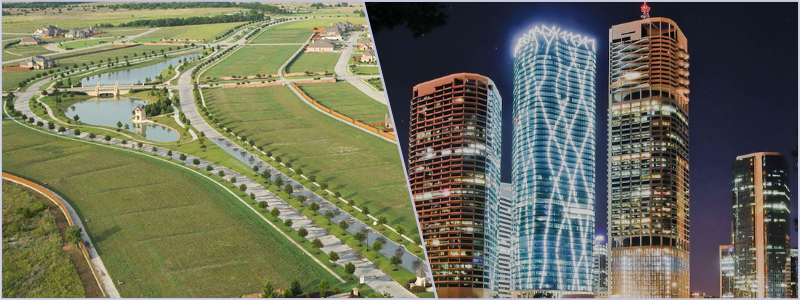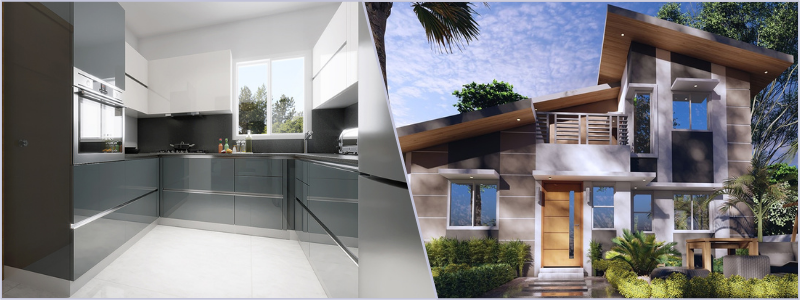In today’s post we are sharing civil engineering services rates, budget breakdown and costs for firms. Take a walk around the city, and a moment to gaze at the tallest buildings, bridges, and roads. Each one was ultimately designed or approved by a civil engineer. A civil engineer applies scientific knowledge to improve the environment of a developing region. In addition, civil engineers create and assess plans and oversee the construction of public works.
Civil engineering is one of the oldest branches of engineering and an essential contribution to modern society. Typically, using their services may cost roughly around $65 to $200 per hour (or 5% to 15% of a project’s total design budget.) However, there are sub-disciplines of civil engineering, and each field of study’s estimated cost can vary significantly.
Civil engineering services branches and rates
1. Construction and management engineering
| Fee percentage | Project total | |
|---|---|---|
| 1-2% | $100,000,000+ | |
| 3-4% | $10,000,000-$100,000,000 | |
| 5-9% | $1,000,000-$10,000,000 | |
| 10-15% | $1,000,000 or less |
Construction engineering involves managing the entire development process for various construction projects, such as bridges, buildings, and roads. A civil engineer ensures their projects are fulfilled in a sustainable and cost-efficient way. One part of their commitments is the asset management phase, where they outline the maintenance and refurbishment of the project upon completion. A civil engineer is knowledgeable of the business, management, and economic sides of a construction project.
2. Geotechnical engineering
| Geotechnical Survey | $1000-$5000 |
| Soil Boring Test | $800-$1400 |
| Perc Test | $1300 |
| Soil Contamination Test | $600 |
Geotechnical engineers focus on the foundation of a structural project design and the unique adaptations required based on the properties of the terrain. Several services provided by geotechnical engineers are:
- Geotechnical surveys.
- soil test borings
- Slope stability assessments.
- Evaluation of landslides and avalanches.
- Performing mathematical calculations to assess the load-bearing capacities of multiple types of ground.
Geotechnical surveys look at the density, composition, compaction, stabilization, groundwater depth, and ground drainage. The results let contractors figure out what issues need to be addressed during construction. A soil test boring looks at soil conditions and soil consistency to figure out the feasibility, tools, and materials for a project. Finally, engineers use perc tests to determine the ground’s ability to absorb water. These tests are usually needed before installing a septic system, leach field, or drain tile.
RELATED: The 10 Highest Paid Jobs in the Engineering Services Industry

3. Structural engineering
| National average cost | $475 |
| Average cost range | $450-$600 |
| Low-end cost range | $300-$400 |
| High-end cost range | $750-$4,500 |
Structural engineering involves the design of structures to ensure they can withstand the loads they will be exposed to on an everyday basis. In general, there are two types of load: live load and dead load. Dead load is permanent, such as a beam that will always put stress on a certain part of the structure. Live load is changing, like the people in a house.
Structural engineers can analyze and design structures to determine the safest structure type for the loads it will be exposed to. They also have to deal with choosing the best material for the project so as to be safe but also as cost-efficient as possible. A solid understanding of physics and the ability to perform mathematical calculations is required.
4. Transportation engineering
| Low Range | $31/hr |
| Average | $42/hr |
| High Range | $62/hr |
Transportation engineering involves the planning, design, and operation of transportation systems such as highways and roads. A transportation engineer is responsible for making sure the transportation systems meet certain standards of safety and sustainability. They also are involved with the operation and maintenance of these transportation systems, and are always looking for innovative ways to improve them.
5. Water engineering/water resources engineering
| High range | $63/hr |
| 75th Percentile | $50/hr |
| Average | $44/hr |
| 25th Percentile | $34/hr |
Water engineering involves understanding how water works in order to create new ways to conserve it. Water engineering is focused on dealing with floods, groundwater, and coastal waters and involves designing ways to store or direct water. Water resource engineering deals with the management of water systems essential to everyday life. An understanding of basic water processes is necessary to be a water resources engineer and design systems that can supply clean water. Some tasks a water resource engineer might take on are the design of dams and culverts.
6. Civil drafting
| High range | $32/hr |
| 75th Percentile | $27/hr |
| Average | $24/hr |
| 25th Percentile | $20/hr |
A civil drafter aids in the design of civil engineering projects and often works hand in hand with other civil engineers. A civil drafter often draws topographical or relief maps (using cross-sections and surveys) of terrain set for construction and then creates reports based on their analysis of the area. CAD software is often used to create drawings and a strong understanding of engineering principles and experience with visualization and design tools is necessary. Civil drafters often convert the designs of architects and engineers into technical drawings.
What affects the cost of civil engineering services
Typically, residential projects cost much less than commercial and government. Secondly, the more technical difficulties and complications found throughout the project, the more effort and time is required for a civil engineer, which will increase your rate. Finally, rates for services in different branches of engineering can vary greatly. For example, the construction of a dam may require a water engineer and will cost significantly more than a structural engineer performing the routine inspection.
Breaking down the cost
It is essential to understand the two types of charges when it comes to each construction project. The two costs are soft costs and hard costs:
Soft costs
Soft costs make up 30% of the total construction cost as it deals in project management, taxes, and inspection fees. Inspection fees cover any transactions related to building inspections and permits. The costs to file and acquire necessary permits are required to obtain authorization for the project. Fees correlated are loan interest, accounting fees such as loan-generated interest, bank transaction fees, construction loan commitment fees, mortgage broker fees, permanent commitment fees, and a few more.
Construction equipment, rentals, and tools are also soft costs that mainly cover equipment such as office supplies and communication devices. You may also encounter additional soft costs such as project management fees, construction insurance, professional dues, local and state taxes, advertising, plus public relations fees.
Hard costs
Hard costs typically make up roughly 70% of the total construction cost. Any expense that is substantial assets such as labor and materials to build the structure and is required to complete the project falls into the hard cost category. The following are references that can also make up hard costs:
- Site costs: Costs that deal with utilities underground, aerial, water systems, drains, fire, paving, grading.
- Landscape cost category: Costs related to the landscape, such as costs associated with maintaining the grass, lawns, trees, mulch, and other materials that are not part of the project itself.
- Contingency: is a set amount of money put aside for unforeseen problems that arise during the project’s construction. It is usually between 5% and 10% of new projects and 10% and 20% for remodeling projects.
- Overhead: covers the costs of just general business stuff, like staff, management, temp facilities, utilities, tools and safety, and security costs.
RELATED: Structural Engineer Rates & Engineering Service Firm Costs

Plot plans
Plot plans are digital-based plans that present a top view of either a vacant or developed property. These plans can range in detail, which influences the price as well.
Structural inspections and assessments
| Type of inspection | Avg. cost |
|---|---|
| Full Home Inspection | $300 – $750+ |
| Foundation | $300 – $600 |
| Load Bearing Walls | $200 – $600 |
| Roof | $200 – $600 |
| Chimney | $200 – $500 |
The most common service provided by structural engineers is inspections. It is fitting to get a structural assessment for various reasons, such as knowing your home before buying or starting a remodeling project. The structural integrity of any project is essential, and a structural review can be very effective in figuring out any problems to address.
Septic and sewer projects
Some civil engineers are particularly skilled in designing on-site septic disposal systems or sewer projects in general. Here are some costs associated with installing a new main sewer line:
| Task | Total cost including labor |
|---|---|
| Sewer Line Per Foot | $50 – $250 |
| Trenching | $800 |
| Backflow Preventer | $150- $1,150 |
| Sewer Cleanout | $2000 |
| Hookup | $500- $20,000 |
Retaining wall installation
The average cost of building a retaining wall is $5,651. A retaining wall holds soil behind it and is made from various materials.
| Type | Total cost per square foot |
|---|---|
| Concrete | $15 – $75 |
| Wood & Timber | $15 – $30 |
| Stone | $25 – $40 |
| Gabion | $5 – $40 |
| Weathering Steel (Corten Steel) | $75 – $125 |
| Rammed Earth | $15 – $50 |
Drainage
Through a comprehensive investigation, a civil engineer can find the problems with an existing stormwater drainage system and conduct any necessary repairs and prevent future issues from transpiring that could affect the structural integrity of a house. The average cost to repair basement drainage is $2,817. The average price of fixing water damage to a home is $2,500. A civil engineer can design an entire basement waterproofing system using gutters, landscape solutions, dehumidifiers, and sealed walls.

Key tips when hiring a civil engineer
It may be intimidating to start a home improvement project, brainstorm plans for a new building, or conduct a search for the best civil engineer when you’re new to the whole process. Here are some tips to keep in mind:
- Contact your local surveyor’s office to make sure the professionals you are looking into are licensed.
- Check the civil engineer’s expertise in a project similar to yours through social media or by asking for references.
- Verify that the civil engineer can complete projects on time or within budget by reading reviews
- Prices will vary significantly based on a civil engineer’s experience- but don’t forgo having your project be of substantially higher quality for a slightly lower price!
- Consider getting quotes from multiple contractors- you may find you can get the same quality service for a lower price from one contractor than another.
- You could also discover that one contractor is suspiciously cheap. Unfortunately, 99% of the time, the contractor is probably inexperienced and will not know to anticipate or handle unforeseen problems.
- The design part of a project consists of approximately 5-20% of the budget, while the actual construction uses the rest. If you find your percentages straying significantly from this, double-check the reliability of the service you’re considering!
How Cad Crowd can help
We offer a wide range of civil engineering-related services that can be provided to professionals and firms, including topography plans, roadway designs, bridge plans, sewage systems, drainage designs, 3D printed scale models, and virtual fly-throughs. Cad Crowd offers a comprehensive array of architecture, design, freelance drafting, and engineering CAD services for professionals, entrepreneurs, inventors, and corporate clients.
We’ll connect you with the services you need, whether it’s civil drafting services to transform your idea into an actual plan or a professional to work with long term. Some of our services include landscape design, construction design and drawings, mechanical drawing services, structural engineering, HVAC design and drafting, and design engineering. Get a quote now, and connect with our leading network of engineers and designers.
